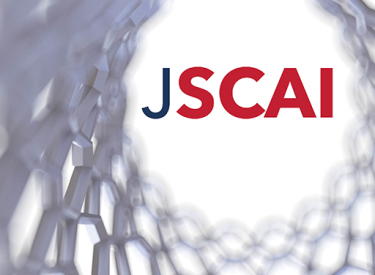WASHINGTON – The Society for Cardiovascular Angiography & Interventions (SCAI) today released a position statement outlining competencies for endovascular specialists who provide care for chronic limb-threatening ischemia (CLTI). The first-of-its-kind document, "SCAI/ACR/APMA/SCVS/SIR/SVM/SVS/VESS Position Statement on Competencies for Endovascular Specialists Providing CLTI Care", published today in the Journal of the Society for Cardiovascular Angiography & Interventions (JSCAI), Journal of the American Podiatric Medical Association (JAPMA), Journal of Vascular Surgery (JVS), and Vascular Medicine (VMJ), is a collaborative effort from eight societies representing many specialties engaged in the care of CLTI patients. The expert writing group aims to standardize expected competencies for endovascular specialists to help ensure patient-centric and evidence-based therapy is delivered to this unique patient population.
CLTI is an advanced stage of peripheral artery disease characterized by rest pain or tissue loss. An estimated two million individuals suffer from CLTI in the United States, and prevalence is anticipated to grow due to the aging of the population and increase in atherosclerotic risk factors such as diabetes and renal disease. Patients with CLTI are at high risk for amputation, heart attack, and death.
"Care for patients with CLTI is typically complex, multifaceted, and multidisciplinary. Standardizing expected competencies for endovascular specialists is an important step to ensure that patient-centric and evidence-based therapy is delivered," said Beau M. Hawkins, MD, FSCAI, chair of the writing group for the document. "This new framework is a starting point to enable training programs, professional medical societies, and other entities to develop curricula that address the needs of this unique patient population."
The position statement details the key skills that all endovascular specialists should possess to deliver successful outcomes for CLTI patients. The skillsets are categorized into six core competencies based on the Accreditation Council for Graduate Medical Education (ACGME) core competencies framework: medical knowledge, patient care and procedural skills, systems-based practice, practice-based learning and improvement, professionalism, and interpersonal and communication skills. To account for a range in complexity across the competencies, the writing group also provides examples stratified into "fundamental" and "advanced" categories.
"This unprecedented collaborative effort among these eight multidisciplinary medical societies is another step forward towards advancing care for patients with CLTI," said Mehdi Shishehbor, DO, MPH, PhD, FSCAI, president, Harrington Heart and Vascular Institute, University Hospitals Cleveland, and co-chair of the writing group. "I hope that these efforts will evolve and translate into better care for these high-risk patients at risk of limb loss," Dr. Shishehbor continued.
The statement also discusses institutional requirements and resources necessary for learners to obtain the necessary skillsets. Recommendations for formal training or independent courses in a post-training practice are also included.
The position statement was endorsed by the American College of Radiology (ACR), American Podiatric Medical Association (APMA), Society for Cardiovascular Angiography and Interventions (SCAI), Society for Interventional Radiology (SIR), Society for Vascular Medicine (SVM), Society for Vascular Surgery (SVS), Society for Clinical Vascular Surgery (SCVS), and Vascular and Endovascular Surgical Society (VESS).
The full document is now available to view in JSCAI.
What's New in Interventional Cardiology
Ground-breaking stories about what's happening in the field.

